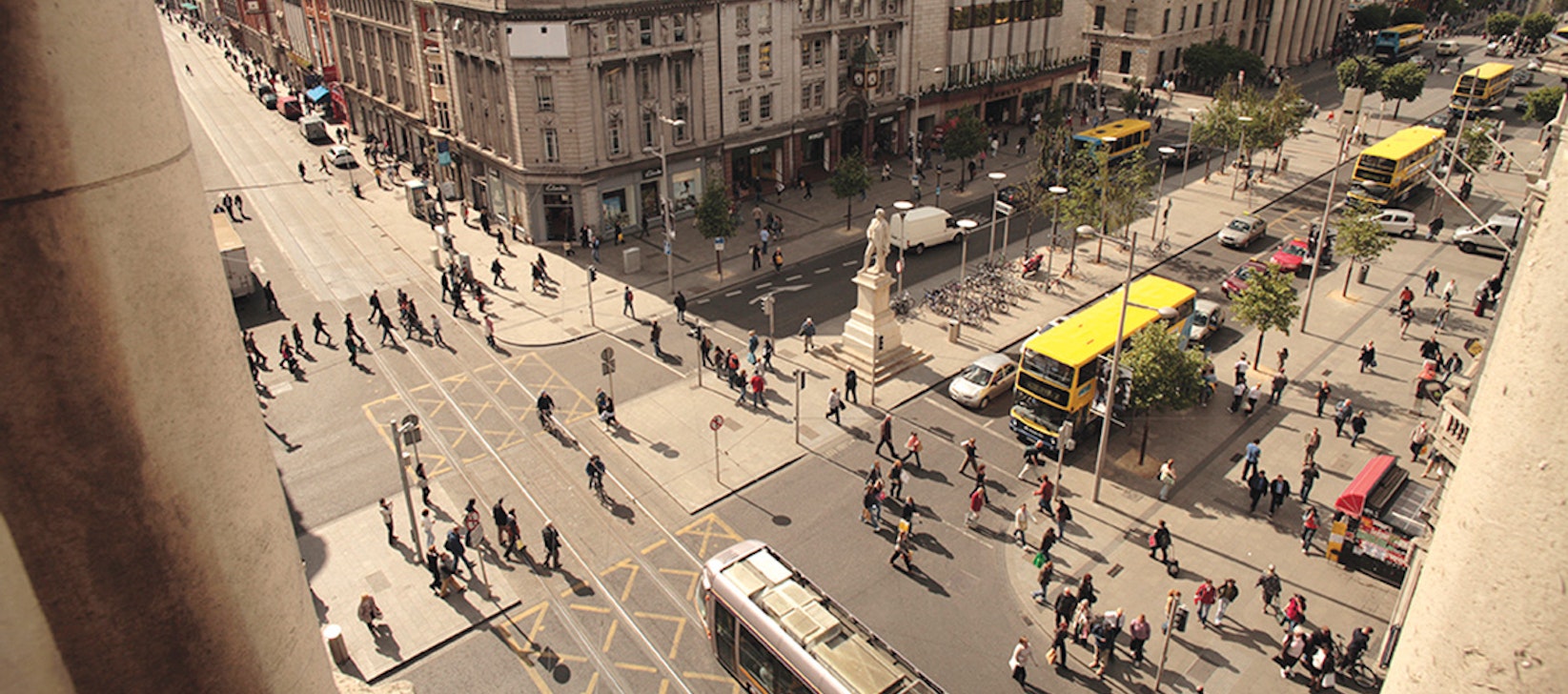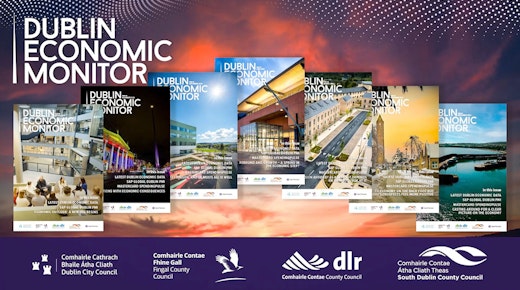In terms of economic development cities and city regions are king. Dublin is Ireland’s only city region of international scale.
The Dublin economic region extends beyond the boundary of Dublin and well into the adjoining counties of Meath, Kildare and Wicklow. Its importance in the national economy cannot be over emphasised. The latest data on the role of the Dublin and the Mid East regions in the national economy is set out below:
Increasing economic activity in city regions worldwide
The development of the Dublin city region and its role in Ireland’s economy provides a somewhat extreme example of what is a worldwide phenomenon – namely the increasing concentration on the world’s economic activity and population in city regions. Over half of the world population now live in cities, and they account for almost 80% of the global economic output.
Cities have long been recognised as centres of economic growth based on the increased potential they offered to exploit economies of scale in various forms. Firms located in cities benefit from efficiencies and savings that result from being close to suppliers, workers and customers (agglomeration economies). They also benefit from being located close to other firms in the same industry especially in terms of accessing specialist skills and a common labour pool (localisation economies).
Companies also benefit from the fact that large urban centres offer sufficient scale and a sufficiently developed client base for particular types of industry and services to flourish (urbanisation economies).
Cities are the primary destinations for internationally mobile human and financial capital in an increasingly competitive global environment for these resources. For example the Department of Jobs, Enterprise and Innovation (DJEI) in their Policy Statement on FDI in 2014 state that.
“Dublin is competing directly with major cities in Europe and beyond for these resources, as more and more the locus of competition for FDI is amongst global cities rather than countries”.
Cities foster creativity and innovation
Recent years have also seen a greater recognition of the role of cities and city regions in facilitating creativity, learning and innovation through the flow of ideas and knowledge across networks and eco systems, with Dublin now becoming an important global centre for start-ups.
Cities originally developed around transportation hubs – major road/rail hubs and ports – where firms located in an effort to minimise transport costs. The presence of firms in turn attracted employees and households. With developments in transportation and communications these costs are less important in the location decision of firms.
Increasingly what differentiates successful cities is a broad range of ‘quality of life’ issues which are increasingly important in attracting employees and in turn in attracting firms. Local Authorities through the services they deliver have a key role in influencing the ‘quality of life’ offered by the Dublin city region.
Dublin critical in national economic performance
Big cities in small countries and especially in small open economies, such as the Dublin city region, have a particularly critical role in responding to the specific opportunities and challenges of globalisation and in driving national economic performance. Dublin faces challenges in maintaining its competitive position and supporting economic growth, while simultaneously delivering a high quality of life and an acceptable environmental footprint.
The National Competitiveness Council in their 2009 report ‘Our Cities: Drivers of National Competitiveness’ summed up the position as follows:
“In view of Dublin’s pivotal role in driving national growth and prosperity, a strong focus on maintaining and enhancing Dublin’s attractiveness as a location to do business in and to live and work in is essential.”






